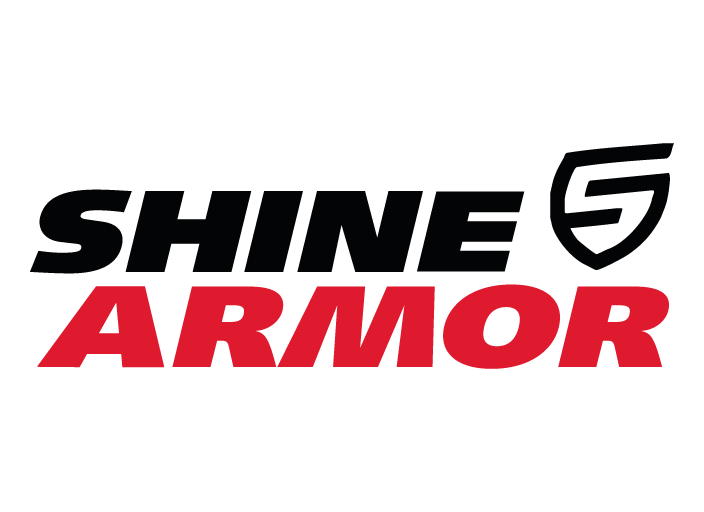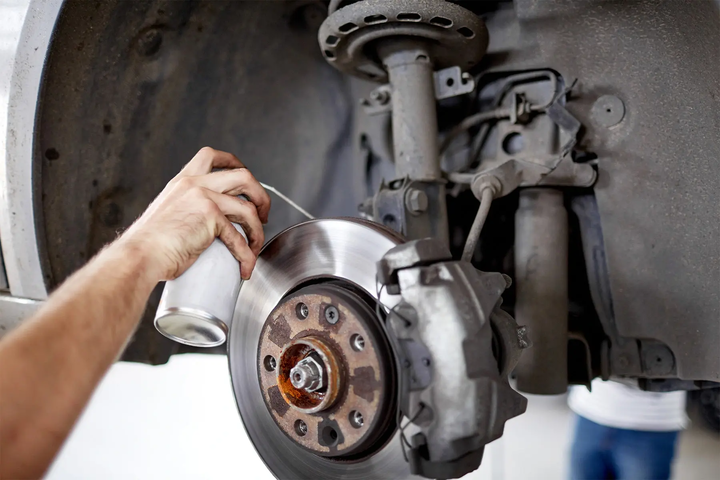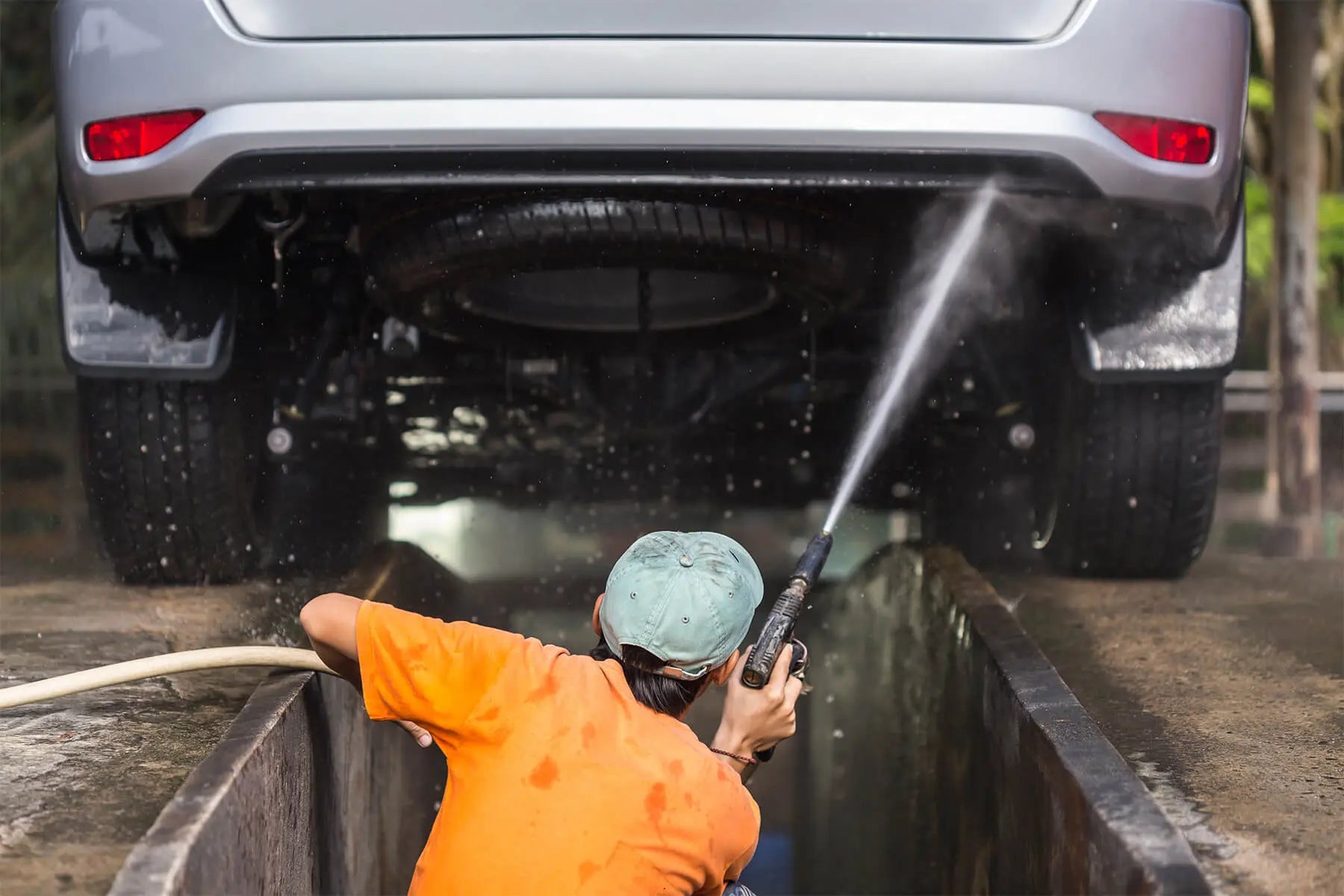
While your vehicle is always making some sort of noise, there’s something about the forceful audible hit of an engine knock that gets your attention and makes you curious about what could be wrong.
While any noise out of place should be diagnosed and repaired immediately, these are a few of the most common causes of engine knocks and the urgency of handling each situation.
Read on to learn more in this article of shine armor blog!
What Are Engine Knocks and Their Possible Causes?
While you may have heard it referred to as pinging, detonation, pinking, or knocking, the term “engine knock” sounds as if it could refer to any knocking sound in your engine, but it actually refers to a very specific occurrence.
As you drive, you actually control hundreds of thousands of miniature contained explosions every minute, which creates the mild rumble sound you hear while your vehicle is running. When your fuel sparks inconsistently or at the wrong time, it will cause an engine knock.
Engine knock is always a sign of a major automotive issue, and should be repaired immediately to avoid permanent engine damage.
Bad Fuel
While filling your vehicle with fuel at a pump seems simple and straight forwards, choosing the wrong fuel or using bad fuels can lead to engine knocks.
Octane rating can be found as the two digit number label on all fuels, and refers to the fuels stability. These ratings include regular, which is 87 octane, mid grade, which is 89 to 90 octane, and premium, which is 91 to 94 octane.
In many vehicles, 87 octane fuels work without any issues whatsoever, while many high-end vehicles may require you to use premium fuels. While some vehicles have octage gauges to adjust for the different fuel ratings, some vehicles aren’t so lucky.
When an incorrect fuel rating is used in a vehicle with a specified rating, it could cause:
- Compression detonation: the fuel begins to ignite due to the pressure of the piston rising.
- Inaccurate fuel burn: your vehicle sparks the fuel expecting it to burn at a specific rate, but incorrect fuel rating causing the fuel to burn too quickly or slowly causing an unsmooth operation.
When you fill your tank, it’s expected that you will drive your vehicle. Gasoline only lasts for 3 to 6 months inside your vehicle before the fuel begins to deteriorate and work less efficiently. Over time, this fuel becomes “stale,” which could lead to engine knocks at the least.
you can see these car wash related products in shine armor:
- Shine Armor Graphene Ceramic Spray
- Spray Wax Quick Coat for Cars
- Performance Booster Oil Additive
- Armor Suds Graphene Shampoo
Faulty Spark Plug
Once fuel is sprayed into your chambers and the pistons compress them, a spark plug creates a spark intended to ignite the fuel and create the mini explosion.
Over time, spark plugs can become contaminated by fuel or carbon. Carbon is released as the fuels burn, and over time can build up and become solid. When these fuels or carbons find their way on spark plugs, it could cause a plug to not spark, or to spark too lightly.
Different cylinder shapes and fuel types could require different materials of spark plugs. Using the wrong spark plugs could cause insufficient burn, and create engine knocking.
It’s important to research your vehicle and see which of the following spark plugs are right for your application:
- Copper
- Platinum
- Double Platinum
- Iridium
- Double Iridium
If your vehicle is designed to use a certain spark plug, it’s important to continue to use the correct plug.
Since plugs naturally become contaminated or worn down, it’s recommended to change them every 30,000 miles or yearly.
Carbon Buildup
Although modern fuels are packed with cleaners and other carbon detergents, as fuels burn, they release carbon which can build up over time. As your engine gets hot, these carbons become extremely hard.
Over time, carbon can build up along the cylinder and on top of the piston, making inconsistent changes to how much spare room is in the chamber. This ultimately changes the compression ratio of the cylinder, but often in a non-smooth manner causing what’s known as pre-ignition.
Pre-ignition can create an early firing issue, where the fuel may ignite while the piston is traveling upward, which causes excess wear on bearings and piston rods.
Pre-ignition doesn’t cancel out your normal cylinder operation, meaning your spark plug will also fire. The two mini explosions will eventually “hit” each other, creating a loud knock.
Out-of-Time Detonation
With an engine being such a complex system, it’s important for your spark to happen precisely when it’s intended. To achieve engine timing, the crankshaft, camshafts, fuel, and spark must all occur at precise times.
In many cases with modern vehicles, your fuel spark is controlled by your car's Engine Control Module (ECM). As you drive, your fuel and timing are constantly being adjusted to ensure your car drives perfectly for the specific conditions you’re driving in.
Need a bit more fuel? Your car adds fuel instantly. Did your air density change as you changed elevation? Your car knows and adjusts before you could notice the difference.
If issues occur with timing where a spark plug is firing when it shouldn’t, you end up with an engine knock and potential engine damage if not resolved.
Damage to timing belts or chains, which connect the crankshaft to the camshafts, could also lead to mis-timed fuel or spark, which ultimately leads to engine knocks. Timing chains work through a metal chain locked into individual gears, while timing belts use a rubber belt with square slots locked into pullings with matching square slots.
Timing chains can wear down over time, which risk possible slop or skipping teeth. Rubber timing belts are intended to last 60,000 to 100,000 miles, or about 7 to 10 years. Once you surpass this timeframe or mileage, the rubber begins to deteriorate and risks damaging its teeth.
This means that, as of right now (2021), your 2014 vehicle may be due for a timing belt replacement.
For some engines known as interference-designed, a worn or damaged timing change could cause internals to collide and lead to added damage. Vehicle maintenance reduces the risk for damage and promotes a longer lasting vehicle.
Shop by category:
Other Knocking Sounds
While engine knocking describes inaccurate detonation, similar sounds in your engine bay may be referred to as a knock.
Even if they aren’t technically a “knock,” they still remain just as important to address to avoid engine damage.
Rod Knock
Often caused by a lack of vehicle maintenance, rod knock is the slop or excess movement of the piston rods. This excess movement is commonly found at the crankshaft within the main bearings.
Rod knock was a popular issue with older vehicles due to poor materials being used for engine internals. The less-than-ideal metals would wear out over time, causing slop in the piston rods.
In modern vehicles, a lack of oiling or avoiding proper oil changes cause bearings and other moving parts to wear out, and damage your engine.
One method to reduce wear and tear on your engine internals is with the use of performance booster oil additives. Additives allow you to slightly adjust or add to your engine oil’s design to increase lubrication and reduce engine wear. These nanocoatings fill the microscopic imperfections naturally occurring in metal to create a more perfect, smooth surface.
Belt Tensioners
As your engine runs, a variety of parts such as alternators, coolant pumps, air conditioning, and other pumps are mounted around the engine and powered by the engine through a series of rubber belts.
Known as accessory belts, these belts are held tight by a spring-pressured pulley known as a tensioner pulley.
If the tensioner pulleys get worn out or damaged in a manner that won’t allow them to move and keep tension, the fast moving belt could begin to slap or bounce, which causes loud random popping noises similar to engine knocks. These pumps and parts are essential to your vehicle’s operations, making maintenance and belt changes vital to longevity.
Accessory belts are intended to last 50,000 to 100,000 miles, and due to the simplicity of replacement, this should be changed during periodic maintenance. If a belt were to break while driving, for the safety of you and your vehicle, you would be required to stop and have the vehicle towed for immediate repairs. Maintaining these belts can save you time and money!
Summary
As you drive your vehicle each and every day, you’ll begin to understand the noises and feels you should expect. Whenever something sounds or feels off or out of place, trust your gut as it often means something is wrong. It’s important to correct issues with vehicles as soon as possible -- just because they run doesn’t mean they’re healthy.
If you neglect an issue and continue to drive, it will only create more (often more costly) issues over time.
Your vehicle is an important necessity for everyday life whether you’re a car person or not, and with proper maintenance and products from companies such as Shine Armor, you can keep your vehicle running smoothly and looking good for the long-run.






